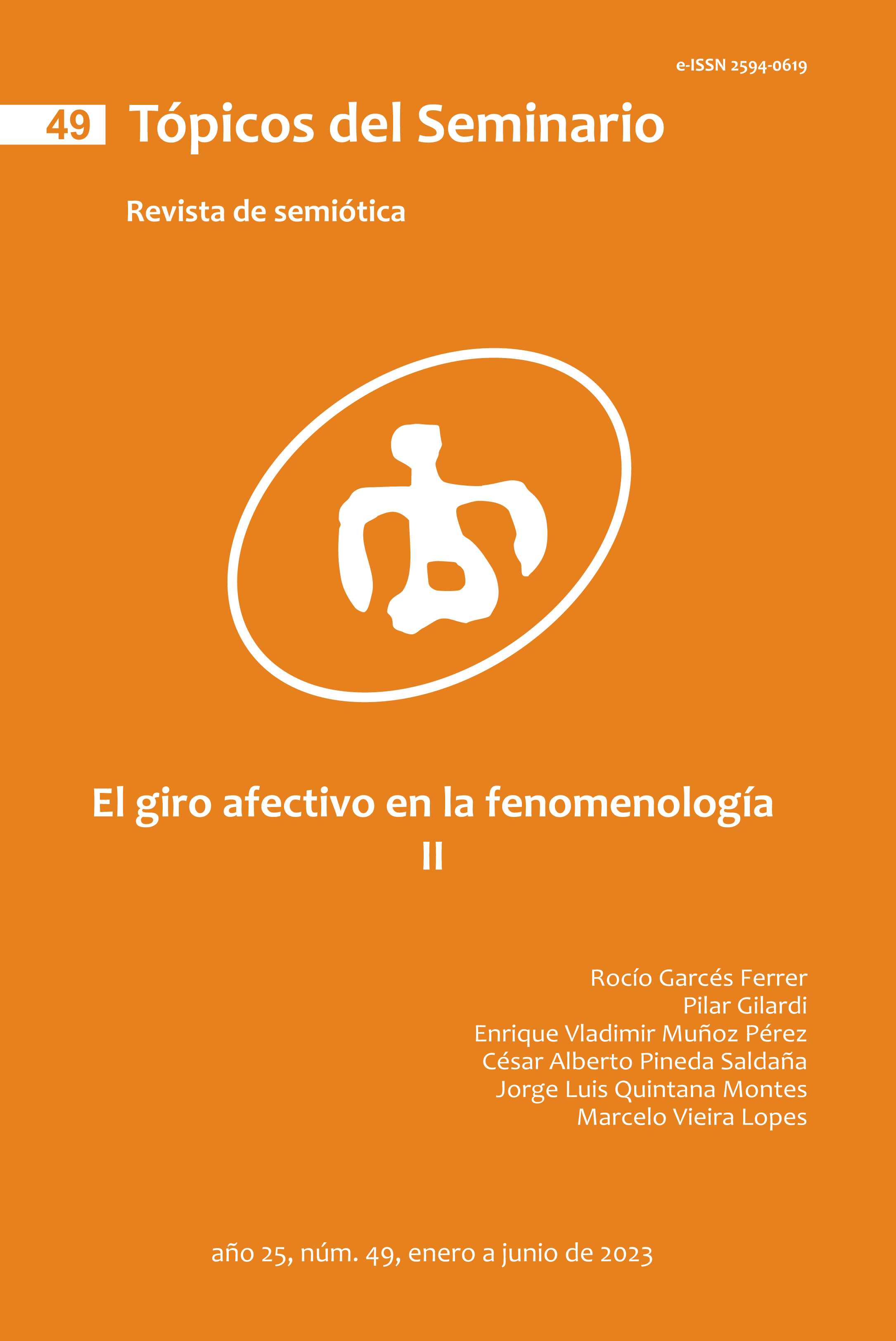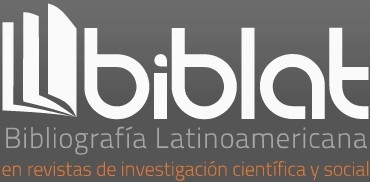The Contemporary Impossibility of Astonishment and the Sense of Dread in Martin Heidegger
DOI:
https://doi.org/10.35494/topsem.2023.1.49.850Keywords:
Phenomenology, Hermeneutics, Soul TemperamenteAbstract
This article seeks to explain, from a phenomenological perspective, what Heidegger means when he states, in the Contributions to Philosophy, that astonishment is the fundamental affective temper of the first beginning, and that fright (Entsetzen, Schrecken) is the fundamental affective temper of the other beginning. Furthermore, the thesis is put forward that wonder, in its full philosophical sense, has become a practically impossible affective temper in our time, taking the following argument as a starting point: if astonishment is provisionally defined as a suspension of everyday referentiality with respect to things, and on the other hand it is considered that today's world is configured by robust networks of information and knowledge, whose overabundance points to a full referentiality, hardly questionable, then one can consider the possibility that the referential suspension implied in astonishment is not only improbable, but even unnecessary and superfluous, since the meaning and functioning of things tends to be more assured than ever; with all this, the very relevance and possibility of philosophy itself is also called into question. The realization of this impossibility, among other things, may point to the emergence of a fundamental fear, of a philosophical nature.
Downloads
References
Castoriadis, C. (2006). Lo que hace a Grecia 1: De Homero a Heráclito. Seminarios 1982-1983. La creación humana II. México. FCE.
Chillón, J. (2018). Los rendimientos fenomenológicos de la angustia en Heidegger. Alpha. (46), 215-232.
Cosmus, O. (2001). Anonyme Phänomenologie. Die Einheit von Heideggers Denkweg. Würzburg. Königshausen & Neumann.
Davis, O. (2016). Temple, Modernity and Destining of Technological Being. Beyond Heidegger´s Critique of Technology to Responsible and Reflexive Technology. Nueva York. Peter Lang.
DECEL (s.f.). Diccionario Etimológico Castellano en Línea: asombrar. Consultado el 4 de noviembre de 2020. Retomado de: http://etimologias.dechile.net/?asombrar
Di Silvestre, C. (2010). La temporeidad extático-horizontal como origen de la trascendencia del Dasein. Discusiones Filosóficas, 11(17), 255-273.
Gilardi, P. (2014). Heidegger: la pregunta por los estados de ánimo (1927-1930). México. Bonilla Artigas.
Gourdaine, S. (2017). L’ethos de l‘impossible. Dans le sillage de Heidegger et de Schelling. Paris. Herman.
Heidegger, M. (1983). GA 40. Einführung in die Metaphysik. Frankfurt. Vittorio Klostermann.
Heidegger, M. (1991). La proposición del fundamento. Barcelona. Del Serbal.
Heidegger, M. (1994). Superación de la metafísica. En Conferencias y artículos. Barcelona. Del Serbal.
Heidegger, M. (2003). Introducción a la metafísica. Barcelona. Gedisa.
Heidegger, M. (2006). Meditación. Buenos Aires. Biblos.
Heidegger, M. (2007a). GA 14. Zur Sache des Denkens. Frankfurt. Vittorio Klostermann.
Heidegger, M. (2007b). Los conceptos fundamentales de la metafísica. Mundo, finitud, soledad. Madrid. Alianza.
Heidegger, M. (2007c). Sobre el comienzo. Buenos Aires. Biblos.
Heidegger, M. (2008). Preguntas fundamentales de la filosofía. Problemas selectos de lógica. Granada. Comares.
Heidegger, M. (2011). Aportes a la filosofía. Acerca del evento. Buenos Aires. Biblos.
Heidegger, M. (2012). Ser y tiempo. Madrid. Trotta.
Heidegger, M. (2013a). ¿Qué es la filosofía? Barcelona. Herder.
Heidegger, M. (2013b). Nietzsche. Barcelona. Ariel.
Heidegger, M. (2014). GA 94. Überlegungen II ― VI (Schwarze Hefte 1931-1938). Frankfurt. Vittorio Klostermann.
Heidegger, M. (2015). Cuadernos negros (1931-1938). Madrid. Trotta.
Heidegger, M. (2016). Cuadernos negros (1938-1939). Madrid. Trotta.
Heidegger, M. (2018a). GA 98. Anmerkungen VI-IX (Schwarze Hefte 1948/49). Frankfurt. Vittorio Klostermann.
Heidegger, M. (2018b). GA 82. Zu eigenen Veröffentlichungen. Frankfurt. Vittorio Klostermann.
Heidegger, M. (2019). GA 99. Vier Hefte I und II (Schwarze Hefte 1947-1959). Frankfurt. Vittorio Klostermann.
Held, K. (2015). Temple anímico fundamental y crítica a la cultura contemporánea en Heidegger. Co-herencias, 12(23), 13-40.
Homero. (2014). Odisea. México. UNAM.
Husserl, E. (2008). (Hua VI). La crisis de las ciencias europeas y la fenomenología trascendental. Buenos Aires. Prometeo.
Husserl, E. (2013). (Hua III). Ideas relativas a una fenomenología pura y una filosofía fenomenológica. Libro primero: Introducción general a la fenomenología pura. México. UNAM/FCE.
Koch, D. (2015). Fundaciones en el espanto asombrante. En Xolocotzi, A. (Ed.). Studia Heideggeriana IV. Buenos Aires. Teseo; Sociedad Iberoamericana de Estudios Heideggerianos.
Powell, J. (2007). Heidegger’s Contributions to Philosophy. Nueva York. Continuum.
Rojas, I. (2016). Thaumazein y disposición afectiva. Análisis fenomenológicos sobre los orígenes del filosofar. En Gibu, R. y Xolocotzi, A. (Coords.). Temple de ánimo y filosofía. Consideraciones heideggerianas sobre la afectividad. México. Aldus.
Xolocotzi, Á. (2004). Fenomenología de la vida fáctica. Heidegger y su camino a Ser y tiempo. México. Plaza y Valdés; UIA.
Xolocotzi, Á. (2016). Los temples de la filosofía. Sobre la afectividad histórica del pensar. En Gibu, R. y Xolocotzi, A. (Coords.). Temple de ánimo y filosofía. Consideraciones heideggerianas sobre la afectividad. México. Aldus.
Downloads
Published
How to Cite
Issue
Section
License

Tópicos del Seminario is licensed under a Creative Commons Reconocimiento-NoComercial-CompartirIgual 4.0 Internacional License.














